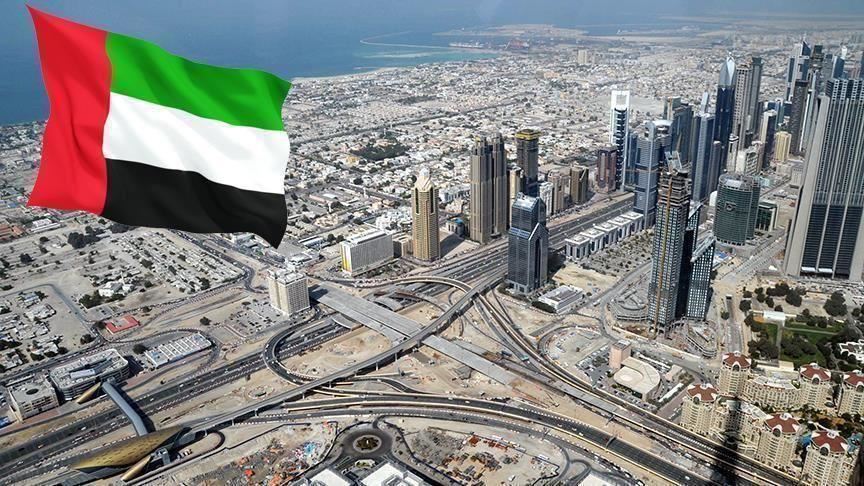Rift in Gulf Cooperation Council Strains SAUDI-UAE Ties

It seems there is a growing divergence of economic, security and foreign-policy interests in the Middle East. This will have a large bearing within the Arabian Peninsula and also on the geopolitics of the entire Middle East. In fact it will affect the U.S. maximum in It’s containment of Iran.
There is a growing Saudi-Emirati rivalry which is certain to increase. This slowly deepening tensions will place businesses and investors in the awkward position of having to choose between them for political rather than economic reasons.
Most of the differences between Saudi Arabia and the UAE stem from economic choices of each, others from contrasting security calculations and still others from ideological considerations. Though till now these have not added up to cause open differences.
The two countries, share a 300-mile border and have a long history of friendship. They drew closer still to each other after the Arab Spring uprisings of 2011, when monarchs on both sides recognized the threat posed by popular pro-democracy movements.
The bonds deepened in the middle of the decade, with the emergence of Prince Mohammed bin Salman as the power behind the throne in Riyadh. MBS, as he is commonly known, developed a close friendship with his opposite number, Crown Prince Mohammed bin Zayed of Abu Dhabi, known as MBZ. The Emirati, arguably the Arab world’s most influential leader, became a mentor to the young Saudi. By 2017, when MBS was formally named crown prince, their two countries were allies in a war in Yemen as well as the embargo of Qatar.
There were other signs of Emirati influence on the Saudi crown prince. MBS’s ambitious plans for social reform, including some freedoms for women and curbs on religious authority, seemed designed to bring the conservative kingdom closer in its mores to the relatively liberal UAE. His “Vision 2030” project to wean the Saudi economy from its dependence on oil revenue was inspired at least in part by the UAE’s successful diversification into areas like tourism and transportation logistics.
However by 2019, UAE was turning away from a confrontation with Tehran and its proxies. The UAE began to pull out of the war in Yemen, where the Iranian-backed Houthi rebels had proved impossible to defeat. The Saudis were unhappy to be left carrying the can, but MBS didn’t publicly criticize his mentor.
Then in 2020, the UAE broke from the Arab boycott of Israel and signed the Abraham Accords, inspiring three other countries to follow suit, the Saudis made it clear they wouldn’t be joining the pack. Then it was Riyadh’s turn to withdraw from a common effort: Toward the end of 2020, MBS decided unilaterally to end the embargo of Qatar. The Emiratis grumbled, but went along.
In 2021, it was the economic competition between them that took centre stage. MBZ accelerated the process of ending the UAE’s geopolitical disputes — notably with Turkey and Syria — to focus on economic challenges at home. MBS, likewise, stepped up his quest to make Saudi Arabia the Arab Peninsula’s leading destination for business and investment.
The intensifying economic competition coincided with a diplomatic surge from both MBS and MBZ. Ahead of the GCC summit, the Saudi prince conducted a whirlwind tour of the member states; among other things, he was reportedly seeking a consensus on how to deal with Iran. Although they have held some backchannel talks with the Iranians, brokered by Iraq, the Saudis remain anxious that Tehran’s accelerated uranium enrichment program is bringing it ever closer to nuclear weapons capability.
The Emiratis, meanwhile, are pursuing more open diplomacy with the Islamic Republic. MBZ sent his brother and national security adviser, Sheikh Tahnoon bin Zayed, to Tehran in early December. Iran’s hardline President Ebrahim Raisi is expected to visit the UAE, possibly in early 2022.
The two sides, this year broke long tradition by openly bickering over oil production quotas in July; the UAE demanded the right to sell more even as the Saudi-led OPEC+ cartel wanted to curb output. A compromise was eventually reached, but a miffed Riyadh banned flights to the UAE — the Covid pandemic was cited as the reason, but nobody was fooled.
The Saudis ratcheted up the tension by challenging GCC’s preferential tariff arrangements. Hardest hit were the companies operating in the UAE’s free zones, which use their proximity to the much larger Saudi market to attract businesses. Riyadh was already pressuring foreign companies to move their regional headquarters to the kingdom, threatening to cut off state contracts for those that failed to relocate. The Saudis also approached thousands of companies around the world with tax breaks and other incentives to use their desert capital as a global business hub.
Acutely aware that its own market is much smaller, the UAE responded to the Saudi challenge by playing up its strengths, such as the relatively liberal lifestyle foreigners can enjoy in cosmopolitan cities like Dubai and Abu Dhabi. It introduced new visa rules to attract foreign talent. And for good measure, the UAE announced it would switch to a Monday-Friday work week to bring its economy in line with international norms.
Recently, the American Camp follower, UK through its Court has tried to humiliate the Sultan of Dubai over a divorce. So the Emiratis seem to have decided they can no longer depend on the U.S. Among other things, this calculation may have led to the UAE’s recent decision to suspend talks with the Biden administration over the purchase of F-35 jets and other weaponry.
The regime in Tehran will have been delighted to hear a top Emirati diplomat advocating against more economic sanctions even as the U.S. was warning of tighter restraints if the nuclear program isn’t reversed. But the change in the UAE’s tone won’t have been welcome in Riyadh; Saudi cities and oil installations remain under constant threat of Iranian-made missiles fired from Houthi positions in Yemen.
The latest round of talks between the so called world powers and Iran began on Monday, but aren’t likely to roll back Tehran’s nuclear program. What all these World Powers are not able to see is that a new star is rising in the East. Soon this star will be shinning brighter and brighter and the entire Indian Ocean Region will become a peaceful area with trade and commerce ruling the roost. The Ocean takes its name from that Star only.



